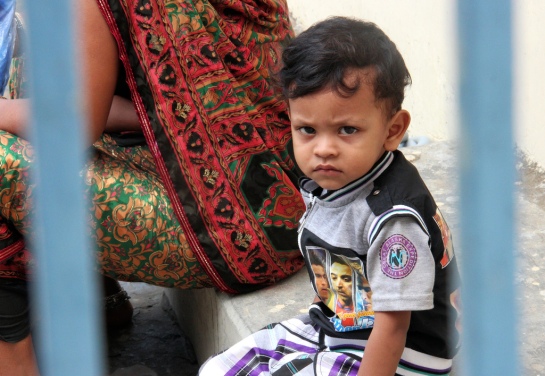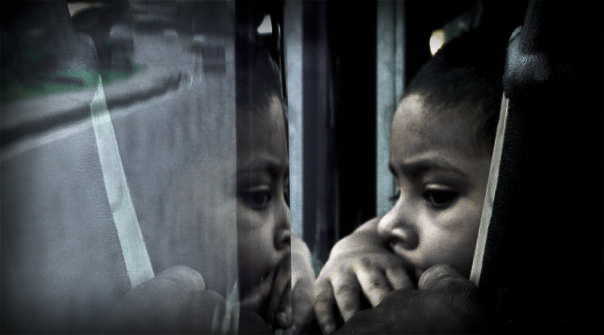I’ll start off by being perfectly honest, I was spanked. Not in the, “Don’t touch the iron, it’s hot” kind of way but in the “Go get my belt” kind of way. Depending on my audience, you are either horrified by that or not at all surprised. The fact is, for many of us, spankings are cultural. Our parents were spanked, their parents were spanked, and their parents before them. In most instances, it didn’t stem from a lack of love. In fact, quite the opposite. As parents of color, we are fiercely protective of our children. Often that protectiveness manifests itself in the fear of the life and death consequences of poor behavior. Disrespecting a police officer may get you killed. We want to be sure our children learn disrespect and poor behavior will not be tolerated.
As parents in a new generation, we have learned more about the long term consequences of spanking. A 2010 study in Pediatrics suggested that frequently spanked children (more than twice a month) are much more likely to act out aggressively. The idea is that children learn that aggression is the best way to solve a problem. In addition, the study found corporal punishment, i.e., spanking, is more likely to instill fear instead of understanding. Further, the study found spanking is less effective with repeated use which makes it less effective as your children grow older and, arguably, the consequences of their actions become more dire.
To be honest, I’m not sure how I feel about it. I was spanked infrequently and I usually felt like I understood why I was being spanked. However, intellectually, I can understand how spanking can send a confusing message to a child about the appropriateness of aggression as a problem solver. The fact remains, however, between 70% and 90% of Americans admit to using physical force when discipling their children. Further, corporal punishment is generally legal as long as it is reasonable. While the definition of reasonable varies from state to state it usually does not include throwing, kicking, burning, cutting and/or other actions that result in physical injury. A mother in Ohio was recently arrested for taping her toddler to a wall with his mouth taped shut. Her son was removed from her custody and she was charged with felony abduction.
Whether you do or do not believe in the effectiveness of spanking, you may be looking for alternatives. Here are four ideas that may help you “spare the rod” and not spoil the child:

1. Quiet Time
I almost called this one “time-out” but I was afraid you would stop reading. Recently, I was touring a daycare and asked about their discipline policies. The director said, “We don’t do time-outs or anything. We just give the children time to reflect.” For close to seven years, through high school and some of college, I worked as an Assistant Teacher/Counselor in a daycare center where we also refused to say time-out. We called it”time under the tree.” There was a pillar in the classroom decorated like a tree with a chair beneath it. A child could sit there quietly or read a book following poor behavior. Insert “eye-roll” emoji here. It was all the same thing.
To me, unless your locking your kids in an attic or engaging in similar questionable practices, time-out is not a dirty word. In fact, I think they should be used liberally for parents and children alike. In our house, we call it “quiet time in your room” and in my best friend’s house, they call it “alone time.” Whatever you call it, sometimes when emotions run high, we need time to take a breath. I find them most useful during times of conflict between older siblings or in younger children following/during a tantrum or meltdown. Conflicts, tantrums or meltdowns are usually periods of high emotion and it benefits all parties to have time to retreat. For kids, it allows them time to gather themselves emotionally. It also removes them from situations where they are acting inappropriately, i.e., hitting on the playground or screaming in a restaurant. This provides direct consequences for their actions. For example, if you don’t stop hitting other children, you will no longer be allowed to play with other children or if you don’t control your tantrum, no one will want to be around you. For adults, it gives us time to cool down and plan. It prevents those moments where you say and do things you may regret because you acted in anger or frustration.
2. Talk it Out
I found poor behavior can sometimes stem from a lack of communication. Whether it is reactive behavior like hitting or dishonest behavior like lying, children act out when they don’t feel heard or understood. Now, you may be thinking “they don’t need to be heard, they need to listen.” I hear you. However, children are just adults in training. They may not run things but they deserve your respect. Giving them respect builds their self worth.
One of my sons is extremely emotional. He has huge reactions to circumstances where he feels like he has been wronged. After the requisite cool down time (see above), I sit down with him to discuss his behavior. I start by asking him his version of events, e.g., what happened? I then ask him to explain his response to the situation, e.g., why did you do what you did? Thereafter, I ask him to tell me how he could have reacted differently to change the outcome. During good conversations, he comes to his own conclusions about his behavior and how he will do differently in the future. When he doesn’t, I guide him.
When he was a preschooler and unable to think as critically, I made it simpler. We would rate the issue to have him assess the appropriateness of his response. For example, if his brother knocked down his block tower and he had a meltdown and hit his brother, I would say, “That is a size 3 problem and you had a size 8 reaction. What would be a size 3 reaction?” In all cases, no matter the age, it is important to lay clear your expectations for your child’s behavior in your home and in the world.
3. Take Things Away
My son bit his brother last summer. They were fighting and he bit him… hard. So hard, in fact, his brother had to take a preventative course of antibiotics. Yeah. My husband and I were livid. We tried every consequence in the book… and I mean everythang. However, it wasn’t until we took away his Nintendo 3DX for the summer that he really “felt it.”
Revoking privileges seems like a no-brainer but many parents have trouble with this one. I think this stems from a lack of consistency. After all, let’s be honest, sometimes taking away an electronic device, television privileges or outside play hurts us more than it hurts them. After all, now we have to find other ways to engage them. However, it is incredibly impactful. Be clear and consistent with your consequences. If you are going to take away the X-Box for seven days, don’t make it five or six, stick to seven days. Not only does it provide real consequences for your child’s actions, it can also provide a lesson in gratitude. After all, you work hard for the things they have. They should work hard to show they deserve them.
4. Set a Good Example
James Baldwin once said, “Children have never been very good at listening to their elders, but they have never failed to imitate them.” If you are lying, stealing, cursing and cheating, it is very difficult to teach your children not to do the same. My friend’s father used to say, “Do as I say not as a I do.” Even as a kid, I took issue with this advice. First, he was showing his children he was unwilling to live up to the examples he set for them. Second, he was giving them unrealistic expectations of adulthood. Even in adulthood, there are expectations and consequences. While it is important not to place yourself on an unreachable pedestal, it is equally important to show your children you are trying. By doing your best, you make their best possible.
What do you think, family? What has worked for you? We’d love to hear from you in the comments.
***
About The Author
Faye McCray is an attorney by day and writer all the time. Her work has been featured on My Brown Baby, AfroPunk, AfroNews, For Harriet, Madame Noire, Black Girl Nerds, Black and Married with Kids, and other popular publications. Faye also has a number of short stories and a full length novel available for purchase on Amazon. Most importantly, Faye is a proud wife and mother to three beautiful and talented young boys who she is fiercely passionate about raising. You can find Faye on Twitter @fayewrites and on the web at fayemccray.com.
attorney by day and writer all the time. Her work has been featured on My Brown Baby, AfroPunk, AfroNews, For Harriet, Madame Noire, Black Girl Nerds, Black and Married with Kids, and other popular publications. Faye also has a number of short stories and a full length novel available for purchase on Amazon. Most importantly, Faye is a proud wife and mother to three beautiful and talented young boys who she is fiercely passionate about raising. You can find Faye on Twitter @fayewrites and on the web at fayemccray.com.

